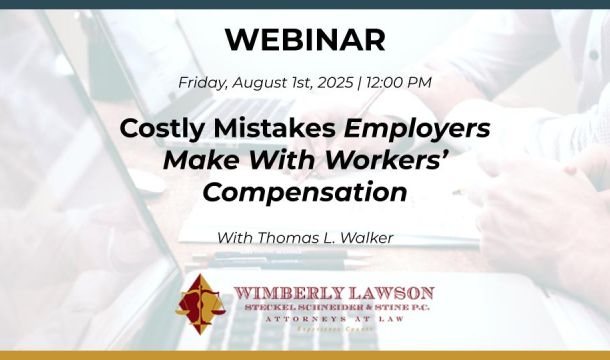How An Arbitration Agreement Put A Class Action Lawsuit on Hold—and May Effectively End It
No company wants to be the target of a class action lawsuit. They are expensive, time-consuming, and a public relations nightmare. This week, the 11th Circuit Court of Appeals put the brakes on a class action lawsuit filed against Waffle House by a rejected applicant on behalf of himself and a class of persons affected by background checks when it enforced an arbitration agreement signed by the lead plaintiff. What makes the facts interesting is that the lead plaintiff, William Jones, signed the Arbitration Agreement with Waffle House after he filed his class action lawsuit. (Jones v. Waffle House, Inc., No. 16-15574, 11th Cir., August 7, 2017).
In a nutshell, Jones applied for a job at a Florida Waffle House in Ormond Beach in December 2014 but was rejected by the store. In October 2015, Jones sued Waffle House and various data-reporting companies in federal district court, claiming that the defendants violated the Fair Credit Reporting Act by failing to give him a copy of the background checks that were run on him in connection with his job application and by failing to give him an opportunity to dispute those background checks. Jones also sought class relief, seeking to represent a class of United States residents who applied for employment or were employed with Waffle House in the preceding five years against whom Waffle House took adverse employment actions based on a background check.
While that lawsuit was pending, Jones continued to seek employment with Waffle House elsewhere. In February 2016, Jones applied for and gained employment at a Waffle House store in Kansas City, Missouri. In connection with his employment, Jones signed an arbitration agreement that covered "all claims and controversies [ ], past, present, or future, arising out of any aspect of or pertaining in any way to [his] employment." The agreement also included a delegation provision requiring that "[t]he Arbitrator, and not any federal, state, or local court or agency, shall have authority to resolve any dispute relating to the interpretation, applicability, enforceability, or formation of this Agreement."
Jones did not tell the lawyers representing him in the federal lawsuit that he had gained employment with another Waffle House or that he had signed an arbitration agreement. He also did not tell his new employer in Kansas City that he was actively suing Waffle House in Orlando. The situation finally caught up with Jones in March 2016, when Waffle House's legal team figured out that Jones was working for a Waffle House and therefore had signed an arbitration agreement. At that point, Waffle House moved to compel arbitration pursuant to the agreement. The district court denied the motion and Waffle House timely appealed. The 11th Circuit reversed the district court and held that the motion to compel arbitration should have been granted:
The arbitration agreement contains a broad, valid, and enforceable delegation provision that expresses the parties' clear and unmistakable intent to arbitrate gateway questions of arbitrability, including questions concerning the interpretation, applicability, enforceability, and formation of the agreement. In the face of the Federal Arbitration Act's clear preference for and presumption in favor of arbitration, we are obliged to enforce the parties' clear intent to arbitrate these issues. (Opinion, p. 3)
The enforcement of the arbitration agreement will stay Mr. Jones' class action lawsuit while the arbitrator decides whether the claims encompassed in that lawsuit should be arbitrated. If the arbitrator concludes that the claims should be arbitrated, then that is where they will go, and Mr. Jones will have to relinquish his role as class representative—all because he took a job with the company he was suing.
The takeaway:
- A good, enforceable arbitration agreement just might save a company from a world of class action litigation hurt.
- Always check a plaintiff's full employment history, up through the present. He or she may be right under your client's nose.

Kathleen J. Jennings is a former principal in the Atlanta office of Wimberly, Lawson, Steckel, Schneider, & Stine, P.C. She defends employers in employment matters, such as sexual harassment, discrimination, Wage and Hour, OSHA, restrictive covenants, and other employment litigation and provides training and counseling to employers in employment matters.
Related Content
Get Email Updates
Recent Content

How to Audit Employment Discrimination Laws Compliance

TPS Update (As of 6/17/2025)

TPS Designation for Honduras and Nicaragua Automatically Extended, But the Date is Uncertain

President Trump Discourages Criminal Enforcement of Agency Rules

Supreme Court Suggests Trump Can Fire Agency Heads without Cause
